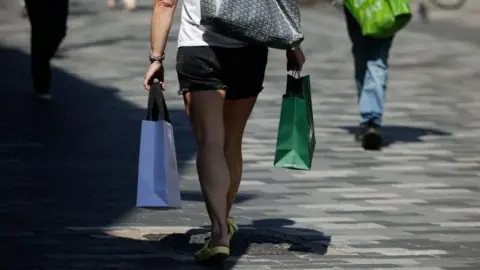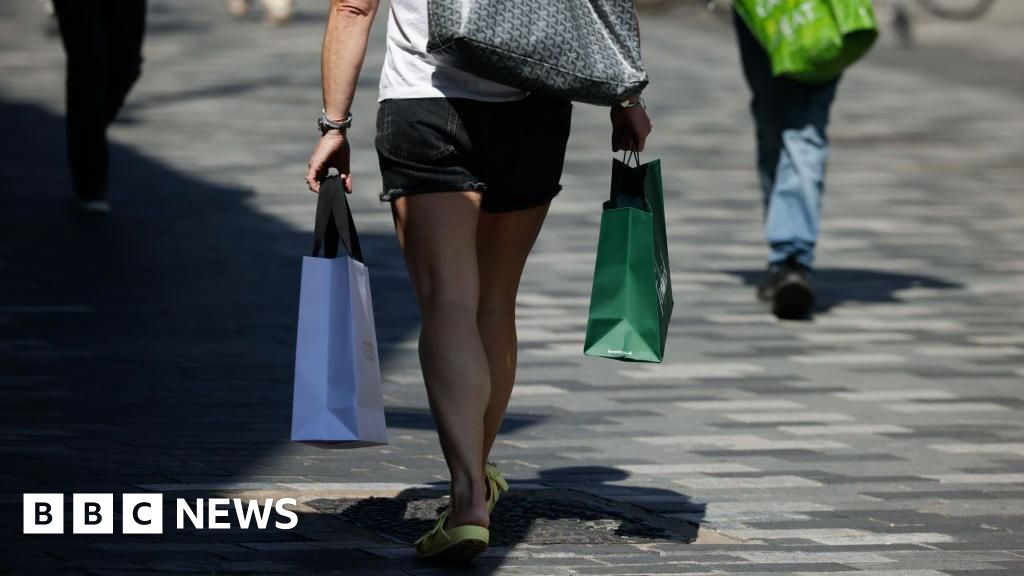 Getty Images
Getty ImagesThe longest-running measure of consumer confidence fell sharply in September, raising concerns about whether government rhetoric about Budget “pain” has spooked people.
GfK’s Consumer Confidence Index had been recovering after years of rolling crises, higher interest rates and inflation gradually creeping up.
But since the end of August, it fell by seven points to -20 overall, which GfK has said does not provide “encouraging news” for the UK’s new government.
Some economists have linked the drop to officials’ warnings of a “painful” Budget at the end of August, although it is impossible to prove a link.
There were “major corrections” – or double digit falls – for consumers’ perception of the general economic situation, as well as how likely they were to make big purchases.
People’s view of their own personal finances in the future has also gone negative again, down nine points to -3.
Former Prime Minister Rishi Sunak had previously hailed the turn in this measure positive as a sign of an economic turnaround.
The fall was unexpected as it came in the aftermath of an interest rate cut from the Bank of England, potentially easing the pressure faced by some homeowners.
But other measures of consumer confidence have dipped too.
“Despite stable inflation and the prospect of further cuts in the base interest rate, this is not encouraging news for the UK’s new government,” said Neil Bellamy, consumer insights director at GfK.
He suggested that following the withdrawal of winter fuel payments and warnings of “further difficult decisions” to come on tax, spending and welfare, consumers are “nervously” awaiting the upcoming Budget on 30 October.
Some business leaders, such as the Labour-supporting boss of Iceland, Richard Walker, have warned the government about “doom-laden prophecies” on the economy.
When asked if “doom and gloom were overdone” last week, Chancellor Rachel Reeves told the BBC: “The latest business surveys continue to show a high degree of confidence in the UK economy because this government has brought stability back”.
She also spoke of how she now wanted to “unlock the huge potential” of the country.
The Bank of England Governor Andrew Bailey said on Thursday that he thought underlying confidence was rising but that consumers “want to see evidence that this is sustained”.
He also noted that rising incomes in the wake of inflation spiking had led to a “sharp rise in savings” in the last year – more than the increase in consumer spending.
The chancellor and prime minister are expected to outline a more hopeful, upbeat economic message at the Labour party’s conference next week, and at an important investment summit in mid-October.
But what’s clear is that this is not a government that is rowing back on the message that the Budget will contain tax rises, welfare cuts and government departmental cuts, which may prove painful for some.


